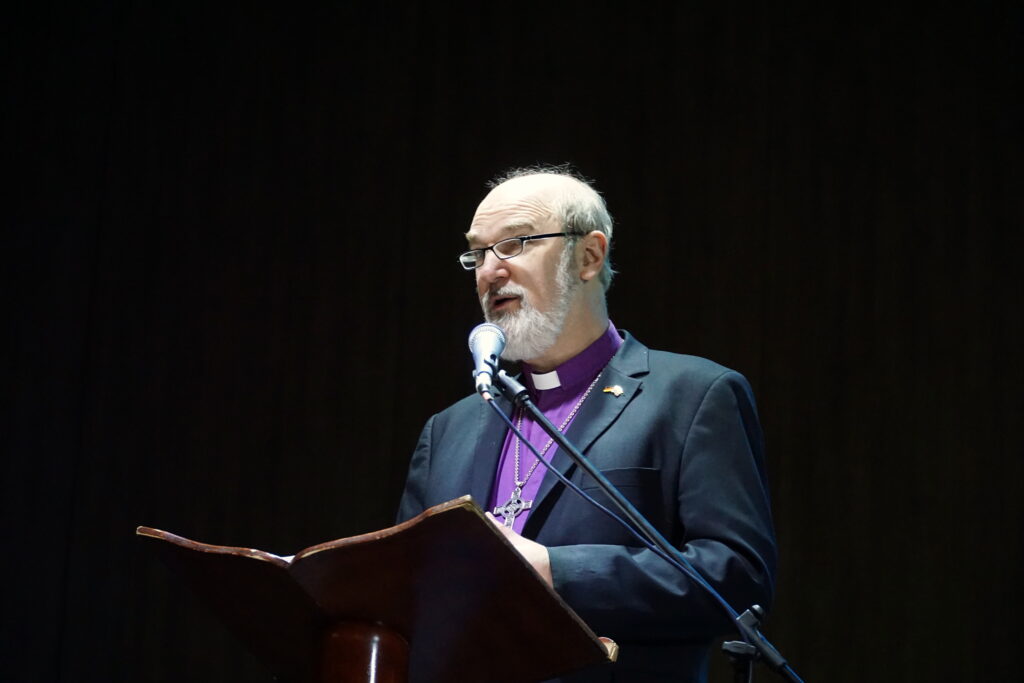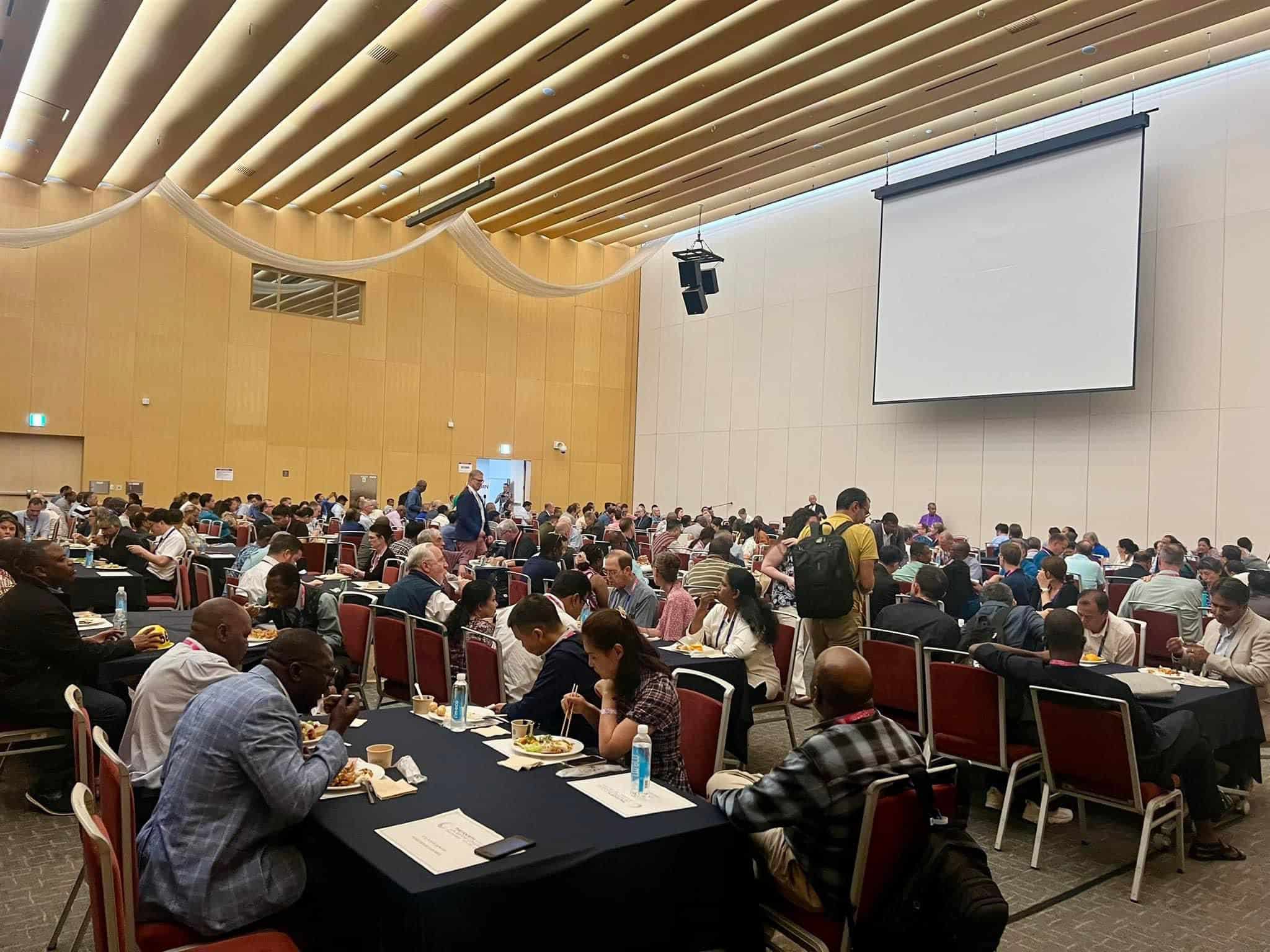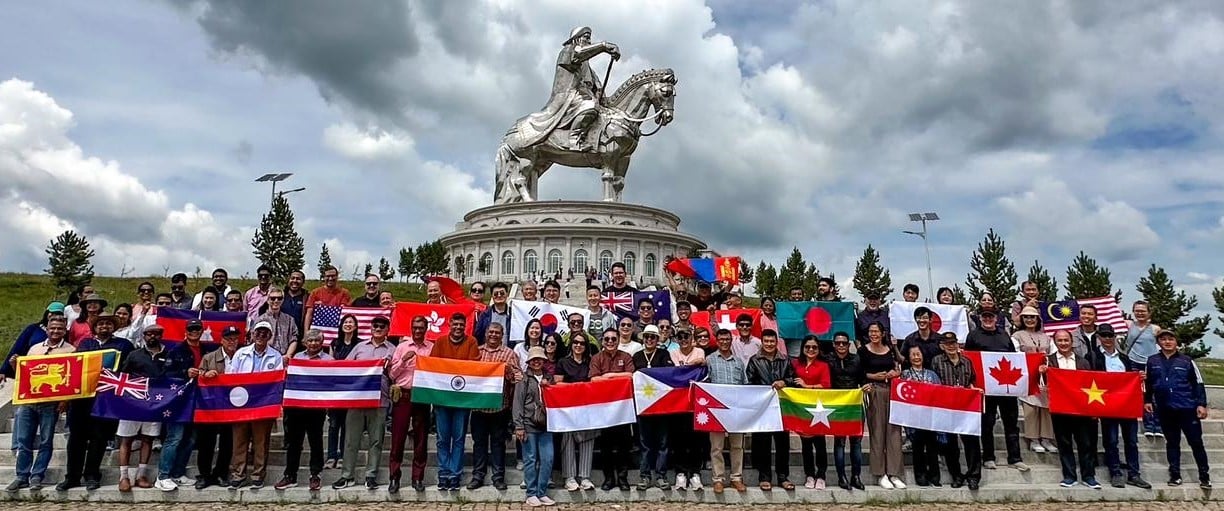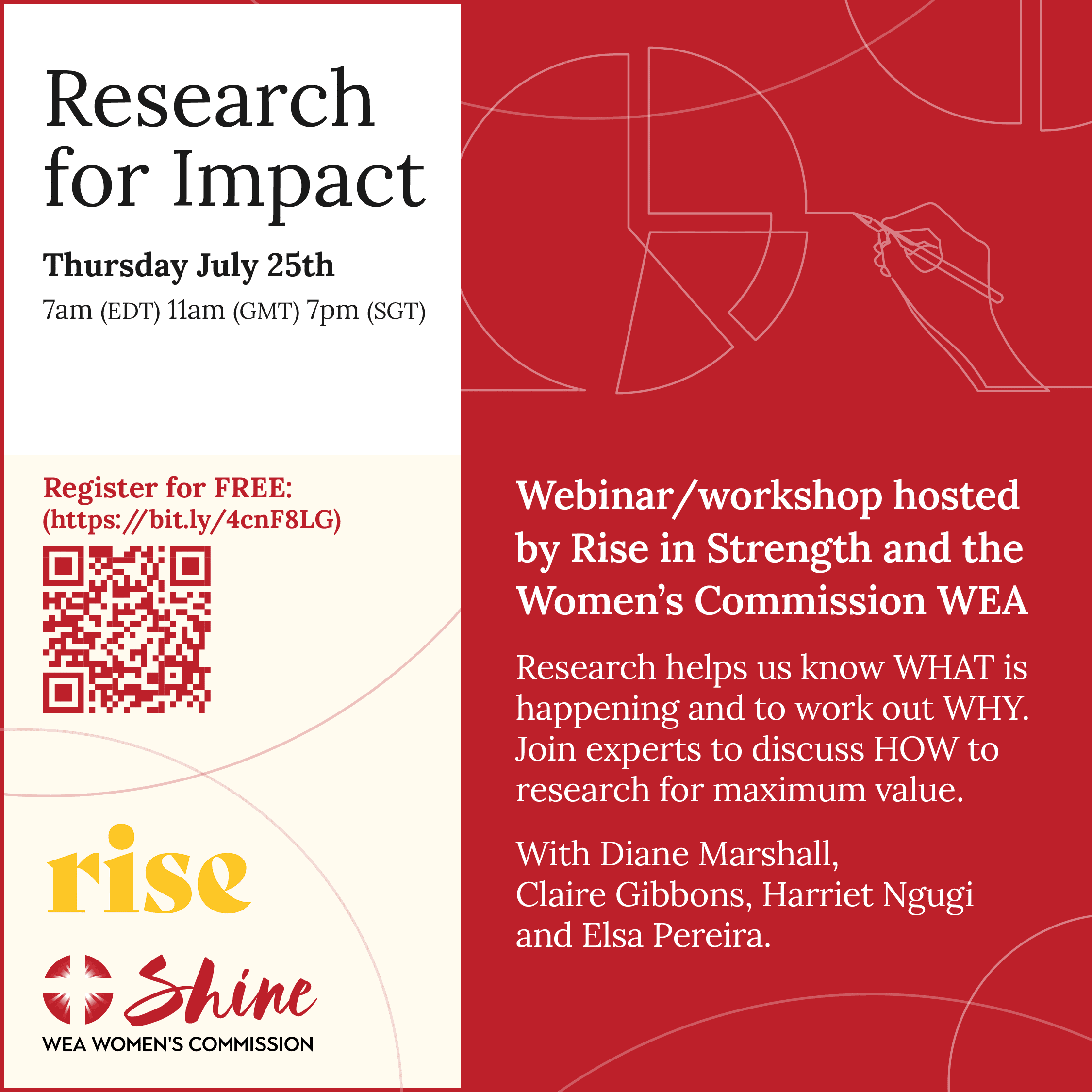By Christian Today
The World Evangelical Alliance (WEA) has been serving and uniting the global evangelical community since 1846, and today represents some 600 million evangelicals worldwide.
Unifying so many evangelicals from different parts of the globe around one vision of evangelicalism has its challenges, but incoming Secretary General Thomas Schirrmacher says things are moving in a positive direction and that Covid has only brought the alliance closer together.
He speaks to Christian Today about how the WEA is growing in its mission of mobilising the world’s evangelicals for Gospel transformation.

CT: You have been involved in the WEA since the 1990s. How do you think the organisation has evolved or grown since that time?
Thomas: When I first got involved with the WEA, I thought it was like a huge store that has nothing in the front window! You may walk by and not think there is very much to it but the more you go inside, you discover it is actually the second largest religious organisation in the world.
Former Secretary General Geoff Tunnicliffe was the first one to really grasp this and try to change perceptions of the WEA. At that time, we put the numbers to him, that while the Vatican was by far the biggest Church group, the evangelicals and the WEA were actually the second largest global Christian organisation – bigger even than the World Council of Churches.
Of course, when we are speaking about spiritual matters, how big we are is not our concern. But when we are engaging with the media and politics, that is very different; size does matter and I felt this was something we should be sharing with the world because often at that time, the evangelicals had a tendency to feel like the victims. We needed to turn that impression of themselves around because when we look at the numbers, it’s not true.
Other areas where I can see positive development is in our dialogue with other religious groups. Many years ago, there was a lot of noise when the WEA’s Religious Liberty Commission visited the Dalai Lama to raise concerns about the persecution of evangelicals by the Buddhists in Sri Lanka. At that time, we said, if we want to speak about the persecution of evangelicals by Buddhists, who else should we speak to? The Dalai Lama actually wrote to the Buddhists in Sri Lanka telling them to stop persecuting Christians, and that was very encouraging for us.
Since then, there has been a change in the mindset of evangelicals. They know now that such engagement is not going against evangelism and I was always very strong on that point because the reality is that most of the Christians who are persecuted are new Christians. And so we cannot simply evangelise people and then when they become Christian and are threatened, we turn around and say to them ‘we can’t help you, we only do evangelism’. No, if Christians are being persecuted, then we need to be there with them too.
There was similar resistance when we started dialoguing with Muslims and even the Vatican. Now the majority of evangelicals not only accept this engagement, but accept that it is not going against evangelism. In fact, it is a form of evangelism because we are engaging with people who will never mix with the ordinary people on the street.
CT: It’s been a challenge sometimes in the history of the WEA to unite all of the different national alliances. Would you say it is a more cohesive organisation now?
Thomas: That was the task that Geoff actually gave to me when he was Secretary General because he wisely said that evangelicals are theology-driven and we won’t get more unity by defending ourselves. It will only come through the Bible and through theology. So we have invested a lot in that, starting with the Theological Commission (TC).
At that time, Geoff told us he wanted the TC to be very close to him and to counsel him. He wanted to be sure that what we do and say as the WEA is in line with the different regions that we serve and in line with the national alliances.
One of our first major pieces of work was a document that we prepared jointly with the World Council of Churches and the Vatican on Christian witness to a multi-religious world – a code of conduct for evangelism.
I remember Geoff saying to me that if this went wrong and the national alliances got angry with us, we might have to look for new jobs! When it came to publishing the document, I spoke with every national alliance about the text and they all agreed to it.
That was a big achievement because there are some alliances that, if it were up to them, would not want us to have anything to do with the Vatican. But I have always said that I do not want the cardinals and the Pope to read what our position is in the newspapers. They should hear it from us. And later on, the Vatican Synod invited Geoff to speak to them on evangelism from an evangelical perspective. I told WEA members at that time that this was evangelism. Telling a room full of 200 to 300 cardinals and bishops what evangelism is is a good hour for evangelism! It is not compromising.
I think that investing in this broad theological discussion with all of the regions and national alliances paid of and now, when we speak on certain issues, our voice as the WEA has become much more confident and it is much clearer that we are speaking as the WEA and that speaking out is what Jesus would want us to do, that it doesn’t mean we are getting unduly mixed up in politics.
CT: Sometimes it seems like the national alliances are stronger than the WEA. Do you see that as a positive or a negative?
Thomas: The national alliances are the members of the WEA, they form the WEA. Whether the WEA is doing a good job or not is measured by whether the national alliances become stronger. So I do not see any tension there, other than the usual tensions that can exist in large organisations between personalities or around organisation or finances and so on.
But it’s in the interests of the national Evangelical Alliances that the WEA is strong and by strong I mean that it’s not eaten up by internal disputes but is united. On the other side, the WEA cannot do anything except through the national alliances. We are not the Billy Graham Evangelistic Association, so for us evangelism is done through the grassroots, through our member organisations, and we want them to be strong.
On occasion, at the WEA level, we’ve started some initiatives that the national alliances didn’t see as necessary. In those cases, it’s important to talk to the national alliances and either persuade them that this is in our interests to do or else be persuaded by them that it is not in our interests, in which case we would abandon the project. Because we have no right to exist in ourselves. When we tell people that we represent 600 million evangelicals, these are the people under our national alliances.
CT: Around 15 to 20 years, the WEA’s finances were quite challenging. Is it on a stronger financial footing now?
Thomas: I would say we are in a much better situation now but it’s still very challenging and the reason for this is very simple. In theory, the WEA is financed by the national alliances but we have a large number of national alliances located in very poor countries. And the number of those has grown. Most of the new national alliances we have added in the last decade are in poor countries or countries where Christians are persecuted. We cannot do fundraising in a country like Brunei or Laos, we’re just glad if we’re even allowed to exist there.
So in reality we depend on large evangelical organisations with more resources. We are in very good shape when it comes to our projects but it’s still very challenging for the administrative side of the WEA. This is of course true for more or less any Christian organisation. There are not many people who want to give just for an office or for a press officer. Everybody wants a good press service, nobody wants to pay for it. In reality, though, the WEA cannot exist without strong administration.
CT: You have five years as Secretary General so what are you making your priorities for this term?
Thomas: The top priority is to smooth our in-house relations. This is not so much a question around national alliances but the relationship between regional alliances because the regional alliances are not part of our legal structure. This is different from the national alliances, which are legally part of the WEA.
The regional alliances historically came in much later and are legally independent. It’s hard to solve the problem on the legal level because we have nothing to say to the regional alliances and, conversely, the regional alliances have no say about what we do. It’s high on my agenda to find better ways than we have now to assure regional EAs and ‘hold the bowl together’, so to speak. This is something we certainly have to improve.
The second thing I want to work on is building cohesion between the various different areas of WEA engagement at places like the UN, where we work on things like women, the environment, human rights, theology and so on. I want our work to be more consistent, and I want people both inside and outside the WEA to really understand that engaging with creation care, for example, and evangelism really go together. It’s not that some people evangelise and others do not. I want the people who do evangelism to understand that in all our United Nations contexts we constantly meet people and talk about Jesus. We need experts to work on these issues but we also want them to speak about our motivation and the Christian basis for our engagement. I want everyone in the national alliances to see that all of our work and all of these different areas of engagement stem from the same motivation.
CT: We are in the middle of a pandemic now so how has that influenced the WEA or your plans for the future?
Thomas: The number one thing it has shaped is this division between doing good and doing evangelism. Before, there was this question for some national alliances: do we help people in need or do we do evangelism? There were national alliances that previously insisted on only doing evangelism and keeping out of anything else. They suddenly came to the WEA and said people are dying on the street, we need funds, can you help us. They realised that evangelism is not enough. We can’t just tell people to trust Jesus and then they won’t be hungry any longer. That’s the reality of what Jesus said: if someone is hungry and you tell him I love you but you don’t give him something to eat, you don’t love God.
The pandemic has also built solidarity between the national alliances. They are all their own legal institutions and I think before there was not enough solidarity. The rich alliances would spend most of their money on good organisation and media or whatever. In other countries, they didn’t even have the funds for one full-time worker or an office. This has really changed because suddenly everyone is in the same boat and now I see a constant stream of financial and other help going from alliances in rich countries to those in poorer countries. There is much more solidarity than before.
The fact that we are all forced to meet virtually has also brought different national alliances much closer together. Before the pandemic, national alliances tended only to connect with the alliances in neighbouring countries. Now the distance between, say, Australia and South Africa doesn’t feel so big and the geographical difference is making far less of a difference. And churches are getting to know much more about the everyday situation of churches in other parts of the world – not just the highlights, but the day to day situation.
I want this solidarity and closeness to continue when the crisis passes. For the Christians in countries with persecution especially, the closeness through the internet and modern technology makes such a huge difference because they constantly feel forgotten.
CT: You’ve been very involved with the WEA’s religious freedom work. It seems like persecution around the world is getting worse rather than better. Is that right?
Thomas: In the overall picture, it’s getting worse. There’s no question about that. And it’s especially getting worse for evangelicals. I’m not saying it’s not important if other people are persecuted because religious freedom is for all and the state should keep out of people’s beliefs.
But we can clearly see that the evangelicals are so much in the middle of persecution. The places where we are seeing the highest growth and conversion rates for evangelicals are in countries that have no religious freedom. We have something like one to two million new converts in Iran.
And the reason is not that under persecution the church grows faster! For example, in East Germany, there was persecution under the Communists and no one became Christian! Even thirty years later, these states are still very strongly atheist. This is one place where persecution had the opposite effect.
Nigeria has the highest concentration of evangelicals and of Christians being killed. It seems that the more who become Christian, the more outraged the extremists become. At the moment, Christians in Nigeria account for around 70% to 80% of all Christians being killed around the world each year. But the country has seen an immense growth of evangelical churches and today half the country is Christian and half the country is Muslim. This is happening in a situation of heightened political tension and intense persecution, and the situation is different even from 20 years ago.
Trying to find a positive in all this, we can be grateful that as much as we hate that any Christian being killed for their faith, there are still many more people becoming Christian than who are being killed. And interestingly, in the countries where it is still quite easy to be a Christian, we rarely see church growth.
I think that for too long, not only Christians but also evangelicals in democratic countries have not been aware of the reality of persecution that many Christians are suffering. When I grew up, persecution was seen as something that happened only under the Communists and very few were aware that the situation in many Muslim countries was just the same. Then, as Communism died back, more and more people have realised the situation for Christians in Muslim countries, but they don’t know that it is just the same for Christians in Buddhist countries or in Hindu countries like India, where the national Evangelical Alliance has repeatedly spoken about the extreme hatred towards the Christians even though nobody really listens.
For too long people have not been aware that it is not just some people who are living under persecution or without religious freedom, but that it is the majority of evangelicals and Pentecostals who are living like this – more than half of WEA members live in countries without religious freedom. That is a reality we as the WEA need to raise awareness of and work to change.]]>





Stay Connected